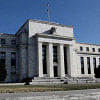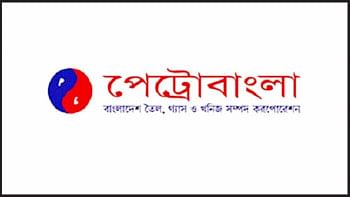Fed's Powell puts September rate cut on table as US inflation cools

Federal Reserve Chair Jerome Powell said on Wednesday interest rates could be cut as soon as September if the U.S. economy follows its expected path, putting the central bank near the end of a more than two-year battle against inflation but square in the middle of the nation's presidential election campaign.
The Fed ended its latest two-day policy meeting with a decision to hold its benchmark interest rate steady in the 5.25%-5.50% range that was set a year ago, but its statement softened the description of inflation and said the risks to employment were now on a par with those of rising prices - neutral language that opens the door for rates to fall after more than two years of tightening credit.
Powell pushed the message even further forward in his post-meeting press conference, noting that price pressures were now easing broadly in the economy - what he called "quality" disinflation - and that if coming data evolves as anticipated, support for cutting rates will grow.
"If we were to see inflation moving down ... more or less in line with expectations, growth remains reasonably strong, and the labor market remains consistent with current conditions, then I think a rate cut could be on the table at the September meeting," he said.
Republican lawmakers warned in a hearing with Powell in July that a rate cut at the Sept. 17-18 meeting, seven weeks before the U.S. elections, could be seen as a politicized move - highlighting progress on inflation and offering the mood-lifting promise of cheaper credit and home mortgages in the near future.
The Fed chief, in response to a question from a reporter on Wednesday, said the central bank's only consideration was the state and direction of the economy and the progress of inflation back to its 2% annual target, not the political calendar or any party's fortunes.
"This is how we think about it. This is what we do," Powell said.
Some Fed policymakers even discussed the logic of cutting rates at this session, Powell said, but "the sense of the (policy-setting) committee was not at this meeting, but as soon as the next meeting depending on how the data come in."
SETTING THE STAGE
Powell's remarks on Wednesday affirmed what investors had come to see as a near certainty that the Fed would pivot in September from an era of restrictive, some would say punishing, interest rates, to a steady easing of credit policy that would see inflation finish the journey to the 2% level without undue damage to the labor market.
Powell said he felt such a "soft landing" was in view, with data that is "not signaling a weak economy. It is also not signaling an overheating economy," he noted.
The Fed's new policy statement took that optimistic outlook on board, noting that "there has been some further progress toward the (Federal Open Market) Committee's 2% objective," while the unemployment rate, at 4.1%, "remains low."
The central bank uses the personal consumption expenditures price index for its 2% inflation target. The PCE price index rose 2.5% in June after exceeding 7% in 2022, and the month-to-month readings recently have shown it even closer to the target.

 For all latest news, follow The Daily Star's Google News channel.
For all latest news, follow The Daily Star's Google News channel. 








Comments